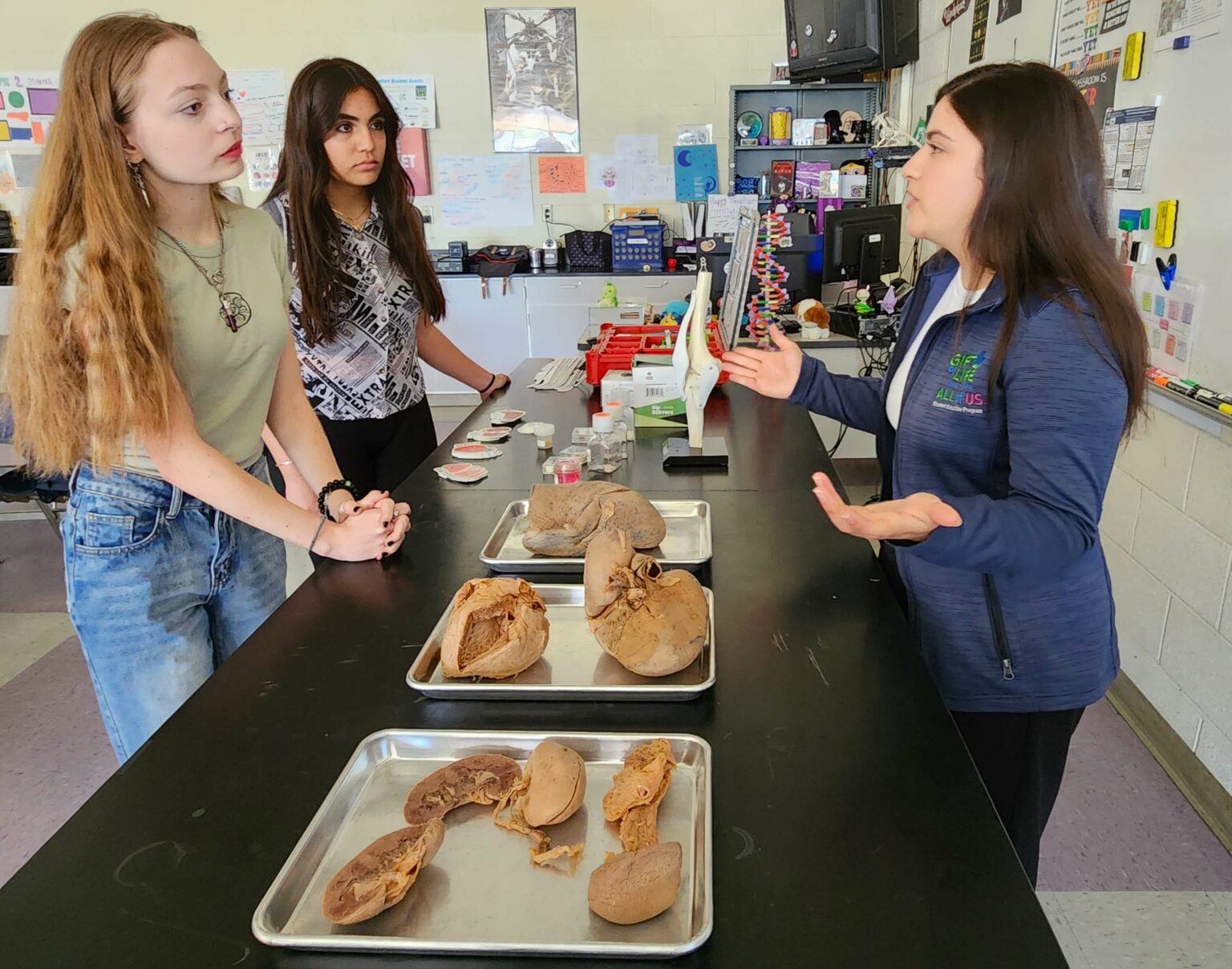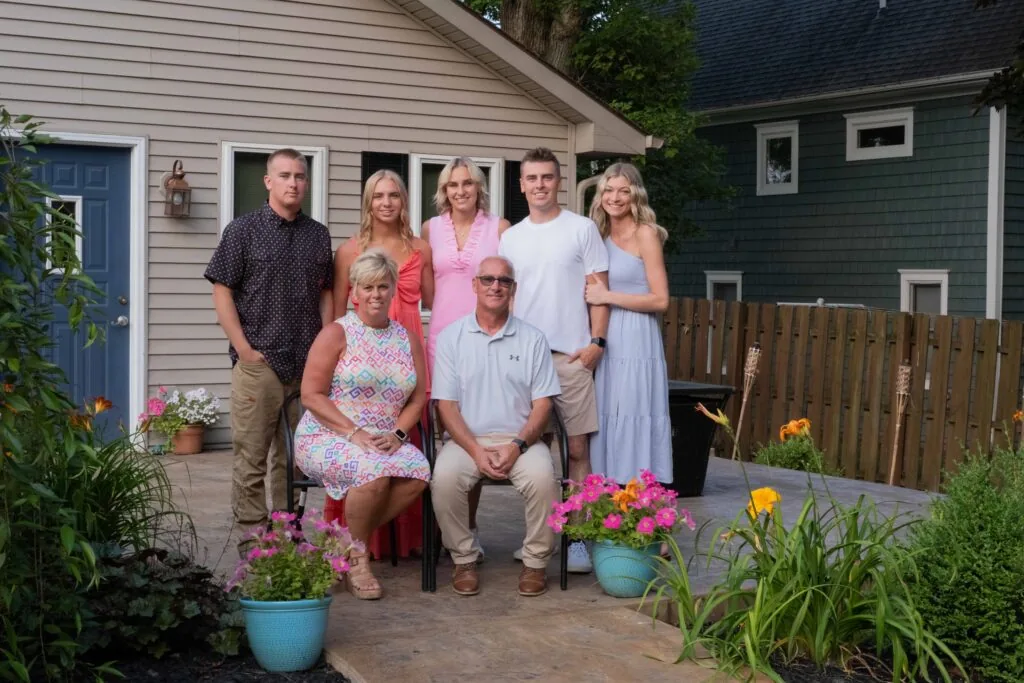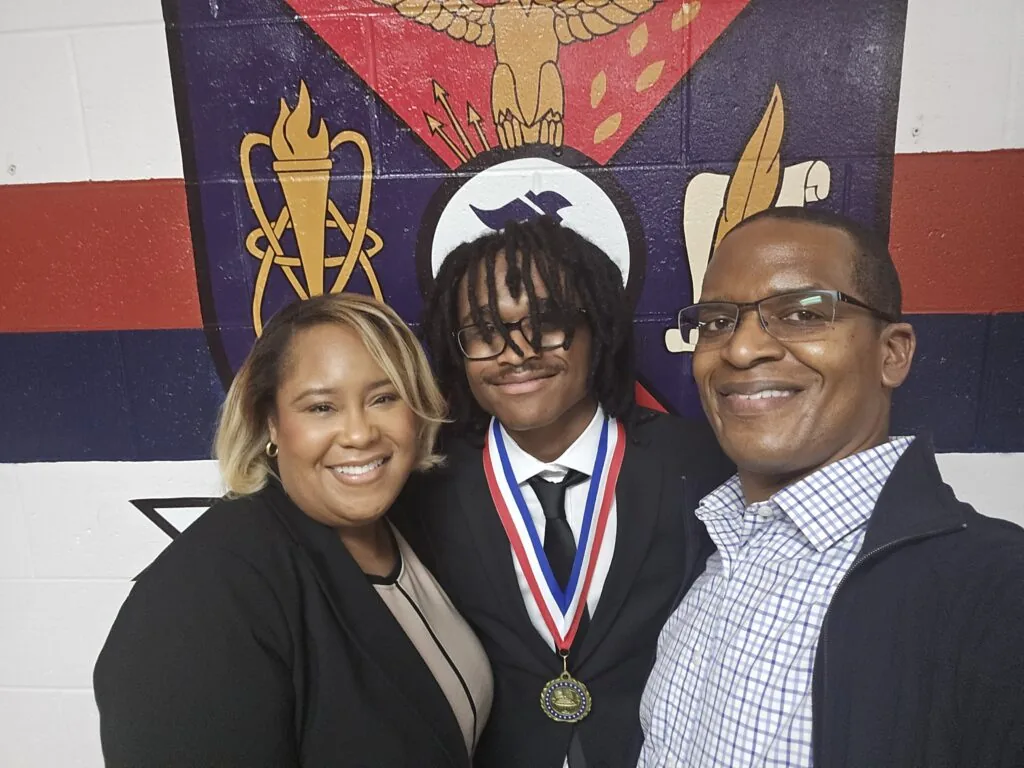High school students fresh out of a wide-eyed hour of Gift of Life’s All of Us education experience about organ and tissue donation were still standing around Cristal Rivas and her table of human organs for several minutes after class ended.
By the time they slowly drifted out to their next class, the teens excitedly rattled off what they took away from the presentation and how they felt about organ and tissue donation.
“I didn’t know that a person can donate a kidney while they’re still alive.”
“I learned that even though I was born with a hole in my heart, I can still save other people. I’m getting my license in two months and I want to sign up now.”
“I didn’t register because of misconceptions. Now I will tell my family about things they’re misinformed about.”
“It makes me feel empowered that I could change someone’s life.”
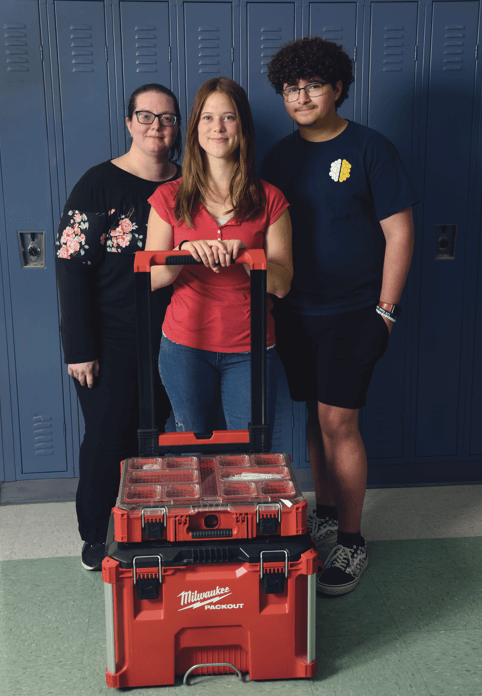 Those students were lucky enough to have science teacher April Barnier at Lincoln High School in Ypsilanti last semester. She regularly welcomes All of Us into her classroom to give them a chance to hold human hearts, lungs, livers and kidneys and to see bone and heart valves up close. Using a small straw, they get to experience what it’s like to breathe while waiting for a lung transplant.
Those students were lucky enough to have science teacher April Barnier at Lincoln High School in Ypsilanti last semester. She regularly welcomes All of Us into her classroom to give them a chance to hold human hearts, lungs, livers and kidneys and to see bone and heart valves up close. Using a small straw, they get to experience what it’s like to breathe while waiting for a lung transplant.
“I reached out to Gift of Life and it’s been an amazing experience,” April said. “The students are engaged. It’s interactive. They get to see an organ right in front of them. They can understand and it’s exciting for them.
“I teach science, but this is more. It’s about being a global citizen, something at Lincoln Consolidated Schools we really try to model for our students. It lets my kids see that they can make a difference in the world.”
Gift of Life’s free learning experience is the only source for facts about donation in public schools. It also is the only opportunity high schoolers in Michigan might have to learn about it before they’re granted a driver’s license and are asked to decide if they’d like to register to be an organ, eye and tissue donor.
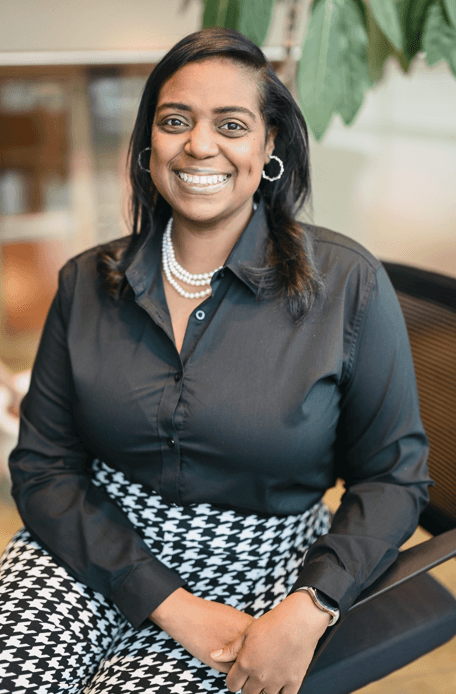 Taneisha Carswell presents All of Us to students in the Detroit area.
Taneisha Carswell presents All of Us to students in the Detroit area.
Without donation, she might not be around today. A kidney from her cousin saved her life, and her career with Gift of Life is propelled by her deep personal connection to donation and transplantation.
“We’re providing real facts about donation and dispelling myths before they’re generationally pushed down to them,” she said. “Not only that, but they’re excited, and they sometimes tell us it was the best program all year.”
Taneisha said All of Us gives teachers a chance to save lives simply by inviting Gift of Life presenters in. “It opens students up to joining the Donor Registry, career opportunities in healthcare and more. It’s a new subject for them.
“When they can experience the impaired vision (glasses with filmed lenses) of someone who needs a cornea transplant, you can see on their faces that they’ve learned something new.”
April said she teaches her students that it’s important to check your sources, and Gift of Life provides facts about organ and tissue donation. That means the kids go home with new or different information than they might have learned from family and friends.
“If they don’t have all the information, they can’t make an informed decision about signing up to be a donor for themselves,” April said. “It starts in the classroom, and like a ripple effect, our families get involved, our community, and beyond.
“I’d say to other science and health teachers, do it!” April said. “True strength comes through how we support each other. It takes all of us.”
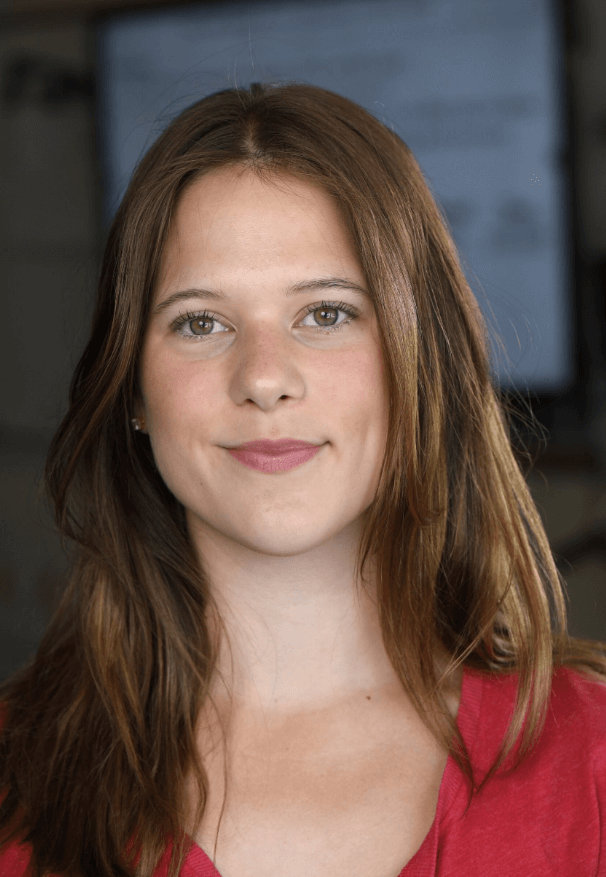 “Thank you for coming to our school.”
“Thank you for coming to our school.”
Abby Rogers thought there must be an age limit to saving lives through organ donation.
Then the All of Us program visited her classroom at Lincoln High School and she discovered that just isn’t true.
“The most surprising thing I learned is that the liver can regenerate itself and you can donate parts of it to those in need,” the Ypsilanti senior said.
Abby didn’t have her driver’s license the first time All of Us was presented at her school. That allowed her to learn about organ and tissue donation and know for herself that checking the box to be a donor someday was what she wanted to do.
Fast forward to today: Abby is a proud registered donor who knows more about it than most.
“If I didn’t hear about organ donation, I wouldn’t have signed up. It’s so important to recognize the difference we can make as human beings.”
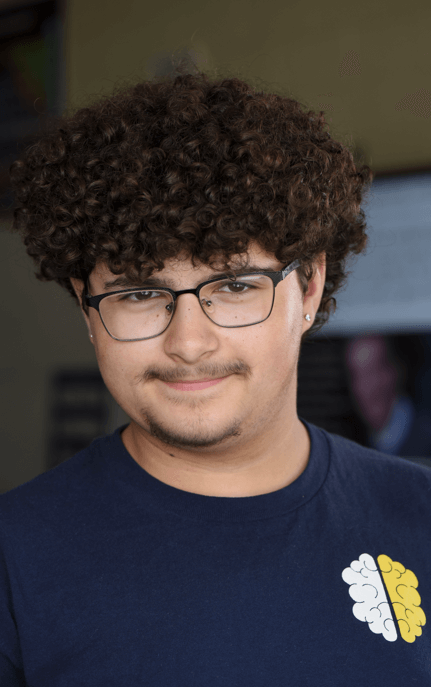 “Why not better the world?”
“Why not better the world?”
As 17-year-old Kelly Chambers sees it, organ and tissue donation is the most selfless thing you can do.
So the Ypsilanti soon-to-be senior grins big when he holds his license up to show the small heart in the bottom corner.
Social media, he said, is a steady source of myths for teens and adults alike, and he’s read that doctors won’t work to save your life if you sign up to be an organ and tissue donor.
“That scared me, but I did some research about it and learned that it isn’t true,” Kelly said.
“Fear spreads quickly, so people should try to find the truth.”
He loves that his teacher April Barnier invited Gift of Life to present facts. “I love science. And why not better the world? You might be the reason someone invents something important because you gave them the gift of life.”


